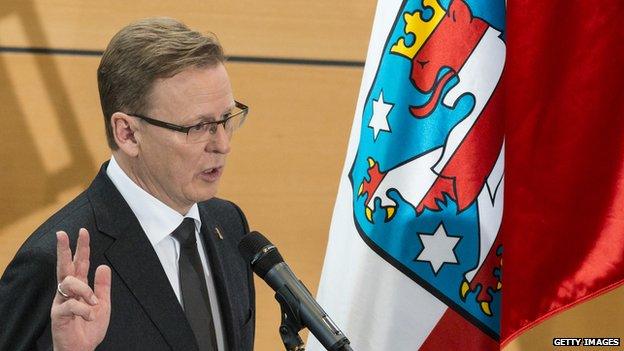
Bodo Ramelow made history as the first far-left prime minister of a German state since the fall of the Berlin Wall in 1989. Coming from the socialist Die Linke party, which has its roots in the communist party of old East Germany, Ramelow’s election as Thuringia state prime minister marked a significant moment in German politics.
Overcoming controversies and suspicions, Ramelow formed a coalition government with the Social Democrats and the Green Party, known as “Red-Red-Green.” This coalition was established on the condition that Ramelow acknowledged the former East Germany as an “unlawful state,” causing emotional reactions both in support and opposition.
Critics of Die Linke accuse some members of having ties to the Stasi, East Germany’s secret police. Additionally, the party’s support for abolishing NATO, banning fracking, and implementing a minimum wage has raised concerns among the political mainstream. Despite warnings from prominent figures like Chancellor Angela Merkel, Ramelow’s practical approach and promises of improving schools and infrastructure have gained support.
As Thuringia adjusts to its new leadership, the implications of this historic moment continue to reverberate throughout Germany. The rise of Die Linke and the formation of the Red-Red-Green coalition highlight the evolving political landscape in the country. Only time will tell how this shift will impact future elections and government policies.
Attribution:
This article was summarized and republished from the original source.
Please check the original article here: https://www.bbc.com/news/world-europe-30342441.